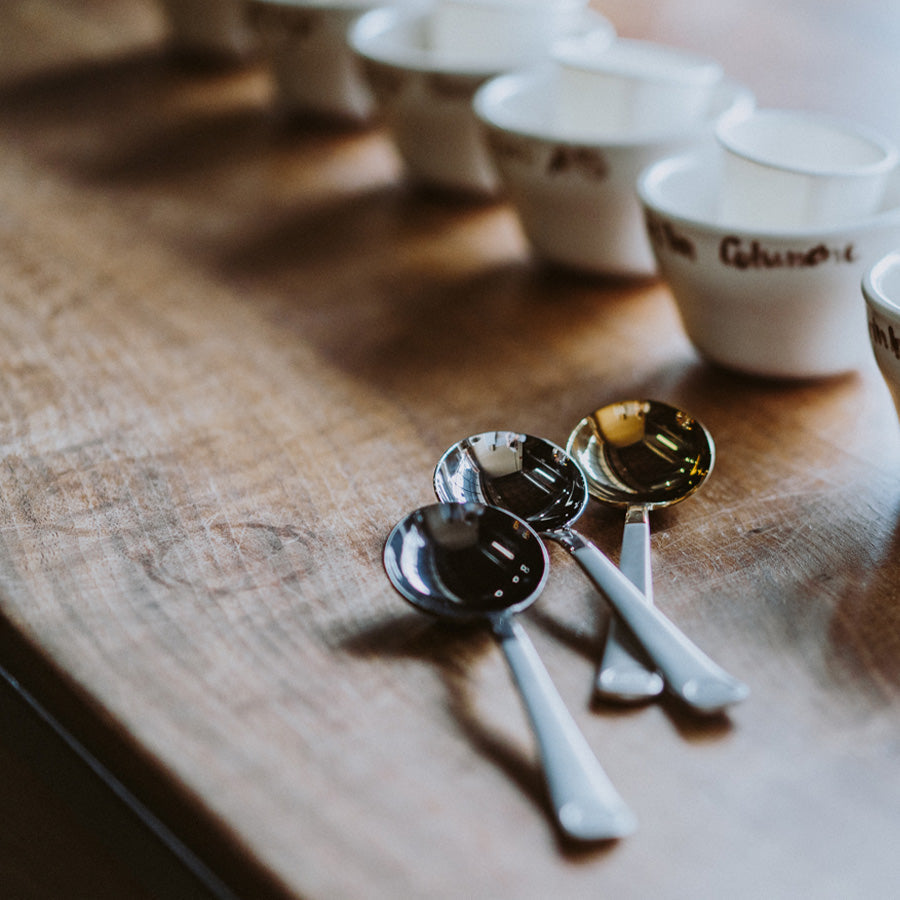The correct coffee dosage is crucial for the perfect taste experience. Different preparation methods require different coffee-to-water ratios. Use a scale for precise results and experiment with the dosage to suit your personal taste. Also consider the bean type, roast, and freshness to get the most out of your coffee.
The correct coffee dosage is crucial for the perfect taste and aroma of your cup of coffee. The amount of coffee grounds you use directly influences the strength, flavor, and aromas extracted. Here's a comprehensive guide to finding the optimal coffee dosage.
Coffee to water ratio
A typical ratio for filter coffee is 1:15 to 1:17. This means 1 gram of coffee powder is used with 15 to 17 grams of water. This ratio can be adjusted according to personal taste and preparation method.
Dosage for different preparation methods
-
Filter coffee (pour over)
• Ratio: 1:15 to 1:17
• Quantity: For a 250 ml cup of coffee you need about 15-17 grams of coffee powder and 250 ml of water. -
French Press
• Ratio: 1:12 to 1:15
• Quantity: For a 350 ml French press you need about 23-29 grams of coffee powder and 350 ml of water. -
AeroPress
• Ratio: 1:14 to 1:17
• Quantity: For one AeroPress coffee you need about 14-18 grams of coffee powder and 200-250 ml of water. -
espresso
• Ratio: 1:2
• Quantity: For a simple espresso (30 ml) you need about 18-20 grams of coffee powder / for light roasts you can go up to 1:3, while the ristretto needs a ratio of 1:1 -
Moka Pot
• Ratio: 1:10 to 1:12
• Quantity: For a 200 ml Moka Pot you need about 18-20 grams of coffee powder.
Tips for coffee dosage
Use a scale
A kitchen scale is very helpful for measuring the exact amount of coffee grounds. They allow for precise dosing, which is especially important for achieving consistent results. A scale helps you maintain the ideal coffee-to-water ratio, which significantly influences the extraction and flavor of the coffee. With a scale, you can also make small adjustments and accurately document the amount you like best. Digital scales are especially useful because they allow for more precise measurements.
Adjust the dosage to your taste
Experiment with the amount of ground coffee to suit your personal taste. If the coffee is too strong, reduce the amount slightly. If it's too weak, increase the amount. It can be helpful to keep a log of your adjustments to reproduce the best results. Also consider factors such as the preparation method and brewing time, as these can also affect the flavor.
Consider the bean type and roast
Different bean varieties and roasts have different densities and flavor profiles, which can affect the dosage. Dark roasted beans are often denser and have a richer flavor, meaning you may need less ground coffee to achieve the desired intensity. Light roasts have more acidity and subtler flavors, so you may want to use more ground coffee. Arabica beans tend to be milder and sweeter, while Robusta beans are bolder and more bitter. Adjust the dosage accordingly for the best flavor experience.
Freshness of the coffee
Freshly ground coffee has more intense aromas and flavors. The essential oils and volatile compounds that make up coffee's taste and aroma begin to degrade immediately after grinding. Therefore, it's ideal to grind the beans just before brewing. When working with freshly ground coffee, you can slightly reduce the dosage, as the coffee will be more intense and aromatic. To preserve freshness, be sure to store the coffee in an airtight container and consume it within a few weeks of the roasting date.




